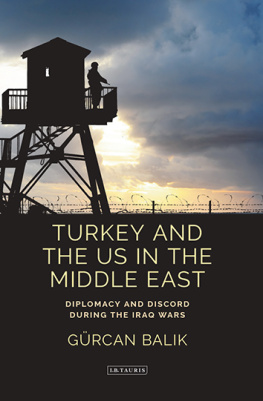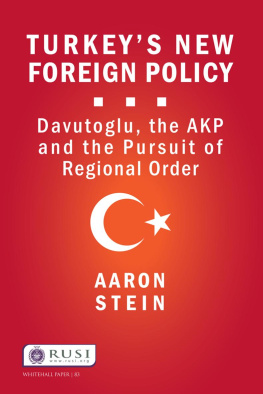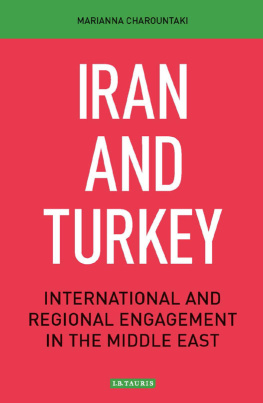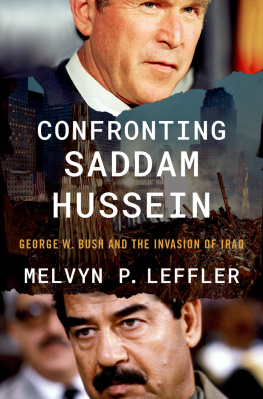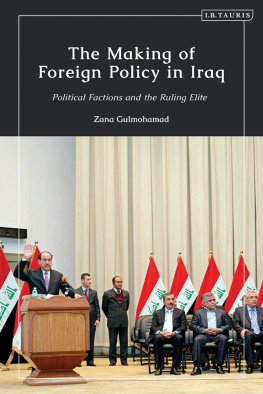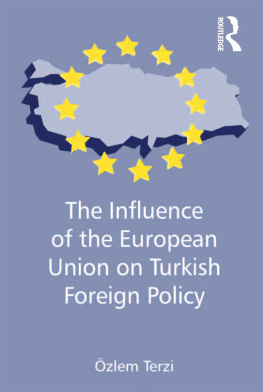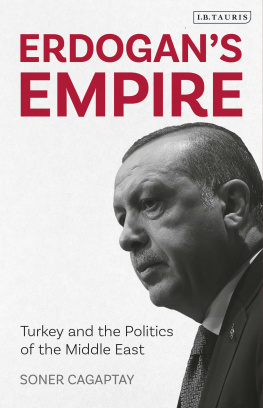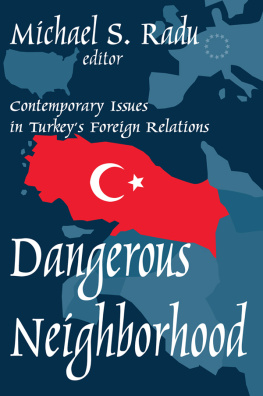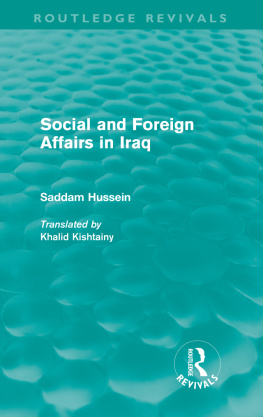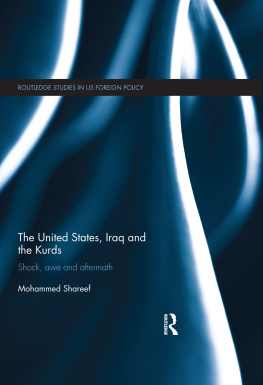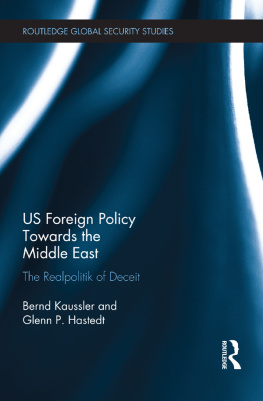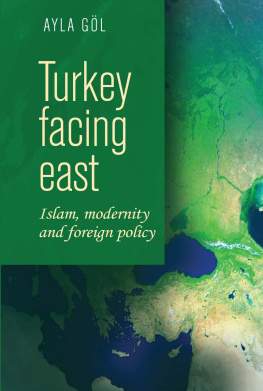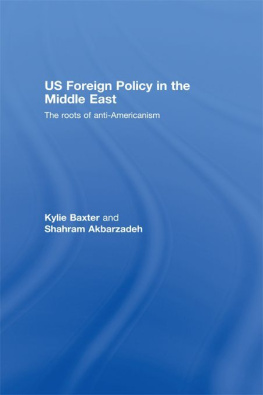Grcan Balk was the chief foreign policy advisor to President Abdullah Gl and has held a number of key diplomatic posts in Turkey. He recently completed a PhD in War Studies at King's College London.
Balk's work is one of the most detailed studies on how the Iraq Wars tested USTurkish relations, twice. A must-read for anyone seeking to understand Turkish foreign policy today and the future of USTurkish ties.
Soner aaptay, Beyer Family Fellow and Director of the Turkish Research Programme, Washington Institute for Near East Policy
This excellent book provides a wealth of empirical evidence and detailed policy analysis on how the two Iraq Wars have become the centre of gravity in TurkishAmerican relations in the post-Cold War era. As a scholar-practitioner who served at the commanding heights of Turkish foreign policy, Grcan Balk has produced an essential account for both researchers and policy makers.
mer Tapinar, Brookings Institution and National Defense University
Contemporary Turkey, published in collaboration with the British Institute at Ankara
Series editor: Glnur Aybet, Professor and Head of the Department of Political Science and International Relations, Baheehir University, Istanbul
New and forthcoming titles:
Turkey and the Politics of National Identity: Social, Economic and Cultural Transformation, edited by Shane Brennan and Marc Herzog
Turkey and the US in the Middle East: Diplomacy and Discord during the Iraq Wars, by Grcan Balik
Turkey's Cold War: Foreign Policy and Western Alignment in the Modern Republic, by aban al
As our understanding of modern Turkish history continues to evolve, and as the Middle East continues to change, a new generation of scholars are exploring questions of identities, class, politics, diplomacy and religion. The British Institute at Ankara (BIAA) is internationally renowned for its support of new independent academic research in the region across various fields, including archaeology, ancient and modern history, heritage management, social sciences and contemporary issues in public policy, and political sciences. Contemporary Turkey is a collection of specially commissioned books published in a collaboration between I.B.Tauris and the BIAA, which focus on the identity, history and politics of republican and modern Turkey. Authors and contributors combine academic rigour and scholarship with extensive first-hand experience in the region.
TURKEY AND
THE US IN THE
MIDDLE EAST
Diplomacy and Discord During the Iraq Wars
G RCAN B ALIK
Published in association with the British Institute of
Archaeology at Ankara (BIAA)
To my late parents: Mrs kran Birinci and Mr Ferhat Balk
Published in 2016 by
I.B.Tauris & Co. Ltd
London New York
www.ibtauris.com
Copyright 2016 Grcan Balk
The right of Grcan Balk to be identified as the author of this work has been asserted by the author in accordance with the Copyright, Designs and Patents Act 1988.
All rights reserved. Except for brief quotations in a review, this book, or any part thereof, may not be reproduced, stored in or introduced into a retrieval system, or transmitted, in any form or by any means, electronic, mechanical, photocopying, recording or otherwise, without the prior written permission of the publisher.
References to websites were correct at the time of writing.
Contemporary Turkey 1
ISBN: 978 1 78453 188 1
eISBN: 978 1 78672 081 8
ePDF: 978 1 78673 081 7
A full CIP record for this book is available from the British Library
A full CIP record is available from the Library of Congress
Library of Congress Catalog Card Number: available
LIST OF TABLES
: Scenarios 12 for TurkeyUS security cooperation on the Middle East
: Scenarios 13 for TurkeyUS security cooperation on the Middle East
: Integrative model of TurkeyUS cooperation during the Gulf Crisis and War
: Integrative model of TurkeyUS cooperation on Iraq, 19914
: Integrative model of TurkeyUS cooperation on Iraq, 19946
: Integrative model of TurkeyUS cooperation on Iraq, 19962001
: Integrative model of TurkeyUS non-cooperation on the Iraq War, 20013
ACKNOWLEDGEMENTS
Had I fully imagined the difficulty of researching and writing this book, when I began it as a dissertation at Kings College, back in September 2007, I doubt that I would have had the courage to begin. This research has been an exhilarating process for me for a number of reasons. First, in the summer of 2008, I was called back from my post at the Turkish Embassy in London to Ankara to become the chief of cabinet to the then Turkish Foreign Minister Ali Babacan, one of the most challenging and time-consuming jobs a diplomat could have. During the process of appointment, I learned that my PhD candidacy had become an issue, as there was a question of whether I would manage to finish the academic work during the hectic schedule at the ministers office. Ironically, my academic ambition was about to become an obstacle to my career as a diplomat. In the end, the experience of working in the making of foreign policy made my research better.
During the process, I also worked for Professor Ahmet Davutolu, the then Turkish Minister of Foreign Affairs, for nearly four years, first as his cabinet chief and then as special advisor, whilst working on my research. I have witnessed day and night the groundbreaking changes in regional and global affairs while conducting foreign policy. My work was a challenge, since one should not merely qualify as a good diplomat, but also meet the high standards of both a reputable scholar and a very influential practitioner of foreign policy.
Secondly, I have written a significant part of this book under most interesting circumstances. From July 2008 to January 2013, in my official capacity, I travelled to nearly 80 countries, attended hundreds of meetings with heads of state, prime ministers, foreign ministers and senior politicians and dealt with a range of real-world and foreign-policy crises, the last of which was the civil war in Syria. Therefore, the only times available to draft this book were the flights from one part of the world to another, at night and in various places, including Ankara, Istanbul, Basra, Erbil, Mosul, Sarajevo, Kabul, Doha, Sana, Moscow, Brussels, London, and elsewhere. It was a challenge, but in a way I might have wanted to demonstrate that dedication is the key to success even if you have a 24/7 demanding job.
Thirdly, this general rule also applies to the interviews that I had in various parts of the world. My official title provided me with access to many senior politicians and diplomats, as well as the trust that is instrumental to candid interviews. I carried out many of the interviews in quite bizarre circumstances. For instance, I interviewed Mr Masoud Barzani during a visit to Erbil, following our official meetings. On such occasions, I had to remove my official cap, and instantly switch into the mood of a researcher, which seemed rather unusual, and even sometimes prompted my diplomatic colleagues to tease me.
Fourth, my official capacity also was useful in accessing the archives of the Turkish Ministry of Foreign Affairs (MFA), and the archives in the Turkish embassies and missions in London, Washington, DC, Brussels and New York. I loved National Security Council (MGK) and cabinet meetings, since those were the rare occasions when I did not accompany my boss and a time that the frequent telephone calls from him were not expected. The elections were the best times, since the minister had to do the political campaigning while I could stay in Ankara. I tried to use those times to get deep into the archives of the MFA, where I was unreachable, and checked hundreds of files. I am not sure whether I would have the courage to do the same again.

